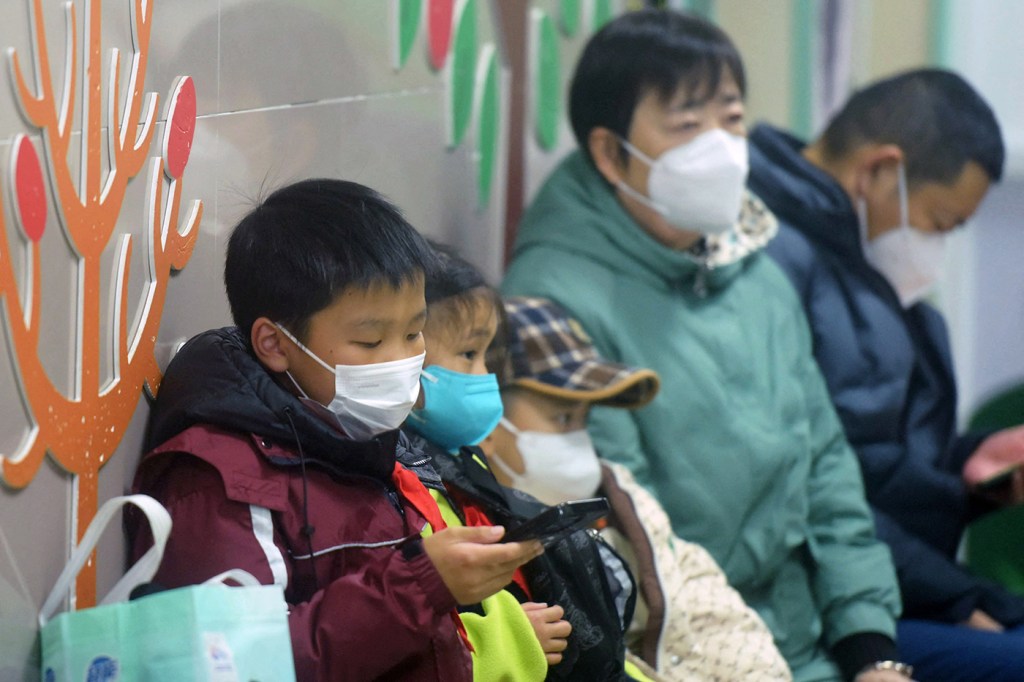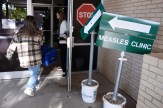What is HMPV, the cold-like virus circulating in China?

Not many people had heard of human metapneumovirus, or HPMV, until a surge of recent cases in China made headlines.
In actuality, the seasonal virus is so common that most people, including U.S. residents, have had HPMV without knowing it, Northeastern health experts say.
“It’s a respiratory illness that can cause common cold symptoms like cough, runny nose and sore throat,” says pharmacy professor Brandon Dionne.
“It’s a common virus that’s been part of the normal respiratory viral season for years,” he says. “It follows the same kind of pattern as our other respiratory viral infections like RSV and flu.”
“This is not something new,” says Neil Maniar, director of Northeastern’s master of public health program. “It’s not the next COVID-like pandemic or anything like that.”
“The data suggest that by the time you are 5 or 6 years old, pretty much everybody’s had it (HMPV),” says Samuel Scarpino, an epidemiologist and Northeastern professor of the practice in health sciences and computer sciences.
“Pretty much everybody (gets it) as they go through childhood,” he says.
Why HMPV is in the news now
Scarpino, who is also director of AI + Life Sciences at Northeastern, calls HMPV “an understudied disease we don’t often test for.”
That changed in China when the country started testing for — and detecting — cases of HMPV.
“A few weeks ago, China said it was rolling out a new surveillance system for pneumonia of unknown origin,” Scarpino says.
“They’re claiming — and this seems plausible — that they’re catching a lot of human metapneumovirus cases. They stepped up surveillance, and as a result have caught more cases because they are now looking for them,” he says.
“This is something that folks are going to watch closely in the global health community, but it is not setting off alarm bells the way it was for COVID,” Scarpino says.
Editor’s Picks
“Right now there’s no signs that there’s been a major mutation,” Dionne says.
The World Health Organization says the number of HPMV cases in China is “within the range expected for this time of year during the Northern hemisphere winter.”
While people with severe cases of HPMV can be hospitalized with bronchitis or pneumonia, most people recover quickly after an infection, WHO says.
Those most at risk of a more serious infection are young infants, the elderly and children with asthma, Scarpino says, adding that “if a healthy adult gets an infection, you might think it’s a head cold.”
Dionne says HPMV is similar to but less serious than RSV, which had been a major cause of mortality in premature infants until the development of a preventative antibody treatment.
Wastewater testing in some locations shows levels of HMPV, but the virus is not yet part of standard testing in clinics or hospitals, Northeastern experts say.
“There’s no vaccine for (HMPV), so you treat the symptoms,” Maniar says.
Like RSV and flu, HMPV is transmitted by coughing, sneezing and touching surfaces and then “touching our mouth or your eyes or your nose,” he says.
Especially at this time of year, he says, “It’s important that everyone exercise the proper precautions. Wash your hands properly. Simple hand sanitizer isn’t going to do the trick.”
“It looks like Moderna has a phase one clinical trial looking at a joint mRNA vaccine for both RSV and human metapneumovirus, as well as another one just looking at RSV for pediatric patients,” Dionne says.
An associate clinical professor of pharmacy and health systems sciences who also works at Brigham and Women’s Hospital in Boston, Dionne says, “Getting from phase one to actual patients is going to take some time.”











